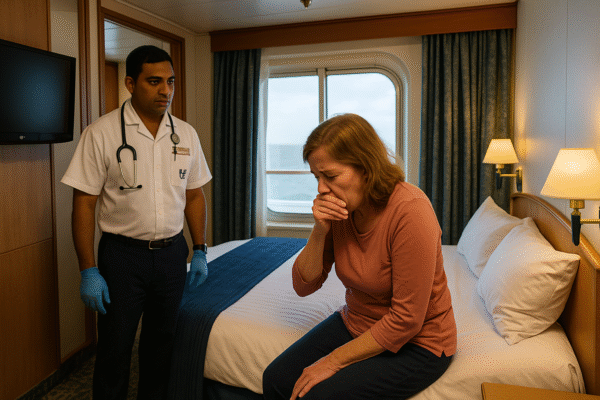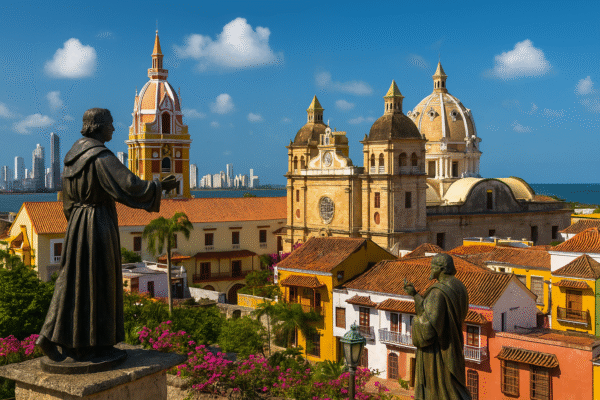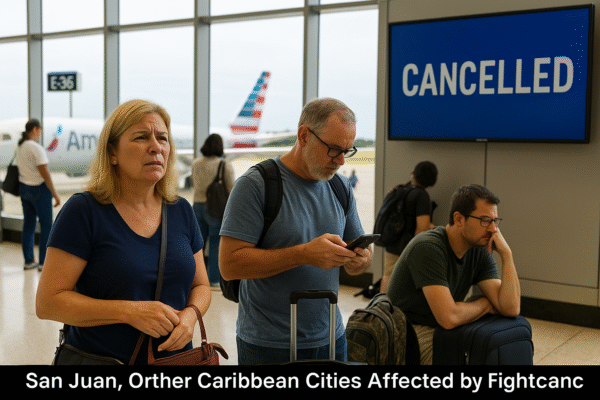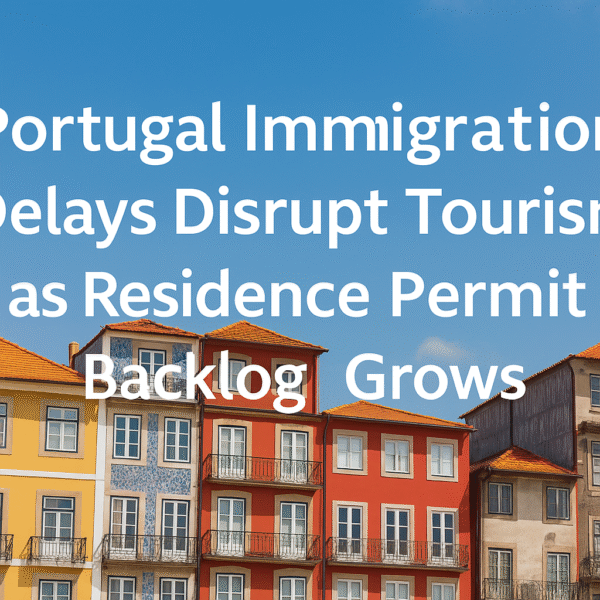Portugal has long been celebrated as one of Europe’s most welcoming destinations, known for its golden beaches, historic cities, and vibrant culture. But the country’s thriving tourism sector is now grappling with new challenges as ongoing immigration delays affect the processing of temporary residence permits. For travelers planning extended stays or considering relocation, these backlogs have disrupted itineraries and sparked concerns across the broader travel industry.
At the heart of the issue is the extended wait for residence permits following the expiration of the D visa, which typically lasts 120 days. Many international visitors now face wait times of up to six months beyond this limit, leaving them uncertain about their legal status and forcing them to rethink long-term plans in Portugal.
Visa Delays Impacting Travel Plans
Tourists and long-term visitors alike have raised concerns about their inability to extend stays while awaiting residence documents. As the D visa expires, many find themselves in a gray area with no clear path to prolong their stay. The lack of reliable timelines has made it difficult for visitors to confirm accommodation, travel bookings, or professional commitments such as remote work arrangements.
For digital nomads, retirees, and families testing the waters of life in Portugal, these delays have been particularly frustrating. Instead of enjoying the country’s relaxed lifestyle, many are burdened by uncertainty. Some have even canceled or postponed trips, choosing destinations in Europe where immigration procedures are smoother and more predictable.
The Role of AIMA and Structural Challenges
Much of the current backlog can be traced to the transition from SEF (Serviço de Estrangeiros e Fronteiras) to the newly established Agency for Integration, Migration, and Asylum (AIMA). This shift aimed to modernize Portugal’s immigration system but has instead created significant bottlenecks as the new agency struggles to handle a surge in applications.
The combination of policy changes, rising application volumes, and administrative restructuring has placed immense pressure on AIMA. With thousands of residence permit applications in limbo, applicants now face extended delays for appointments, often with no clear communication on timelines. For travelers, the absence of certainty is eroding confidence in Portugal’s appeal as a long-stay destination.
Strain on Tourism Businesses
The consequences of immigration delays are being felt across Portugal’s tourism economy. Hotels, guesthouses, tour operators, and local service providers rely heavily on visitors who stay for weeks or months. Now, with travelers reconsidering or shortening their visits, businesses are facing reduced bookings and cancellations.
In Lisbon and Porto, tourist flows have slowed compared to expectations. Smaller towns and coastal communities that depend on long-term visitors are particularly vulnerable. The decline in confidence among travelers has raised concerns about revenue losses during peak seasons, threatening the momentum Portugal had built in becoming a hub for international visitors and lifestyle migrants.
Long-Term Visitors Reconsidering Portugal
For many international visitors, Portugal’s residency pathway is more than paperwork—it represents an opportunity to immerse themselves in the country’s culture and lifestyle. The delays, however, risk pushing these individuals toward alternative destinations. Countries offering digital nomad visas or clearer immigration systems, such as Spain, Croatia, or Greece, are becoming attractive substitutes.
Portugal has worked hard in recent years to cultivate its reputation as a haven for expats, entrepreneurs, and retirees. Affordable living costs, safe cities, and high quality of life have drawn global interest. Yet, the uncertainty caused by residence permit delays could undermine this progress, particularly if potential long-term residents choose to settle elsewhere.
Government Response and Industry Expectations
Portugal’s government has acknowledged the challenges facing AIMA but has not yet provided a definitive timeline for resolving the backlog. Tourism stakeholders are urging authorities to prioritize efficiency, emphasizing that delays risk harming not just immigration policy but the wider economy.
Industry leaders stress that clear communication, digital application systems, and dedicated resources for backlog clearance are essential. Without these measures, the delays could damage Portugal’s reputation as a top European destination. For now, tourism businesses remain hopeful that reforms will be implemented to stabilize the situation before further losses occur.
What Travelers Can Do
For those planning extended stays in Portugal, staying proactive is key. Travelers are advised to monitor updates from immigration authorities and remain in close contact with their case handlers. Being prepared with documentation, early applications, and alternative plans can help reduce stress during periods of uncertainty.
Tourists on shorter visits remain largely unaffected, but those aiming to stay beyond the initial visa period should factor in the possibility of extended processing times. Travel advisors recommend securing flexible bookings and maintaining open communication with accommodation providers in case plans need to change.
Outlook for Portugal’s Tourism and Real Estate
The outcome of this immigration backlog could shape Portugal’s future as both a tourism hotspot and a relocation destination. Long-term visitors, including digital nomads and retirees, represent not only tourism income but also contribute to local communities and the real estate market. Their absence would ripple across multiple sectors, from hospitality to housing.
Experts believe that resolving the delays will be crucial to sustaining Portugal’s growth in global tourism rankings. If immigration processes are streamlined, Portugal can continue to attract millions of visitors and strengthen its reputation as a premier destination for culture, leisure, and lifestyle migration.
A Tourism Sector in Transition
Portugal stands at a crossroads. While its natural beauty, rich culture, and affordable lifestyle continue to draw global admiration, immigration delays pose a significant challenge to its tourism momentum. For now, the backlog of residence permits casts a shadow over the country’s otherwise strong appeal.
If the government can address the bottlenecks quickly, Portugal has the potential to reinforce its standing as one of Europe’s most welcoming destinations. But until then, travelers and tourism businesses alike will need to navigate a climate of uncertainty, hoping for a smoother process that matches the warmth and hospitality Portugal is famous for.
For more travel news like this, keep reading Global Travel Wire


















